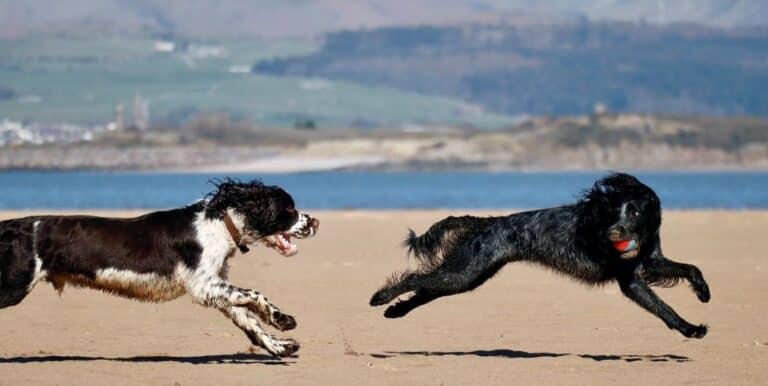How Do I Choose the Best Dog Sunscreen?

Dogs are generally protected from sun damage to the skin by their fur. Some dogs, for example, the hairless Xoloitzcuintli, are at greater risk for sunburn and skin cancer than other dogs and may require sunscreen when overexposed to the sun. Pet experts typically recommend sunscreens designed specifically for dogs, but also include other types of sunscreens. The best sunscreen for dogs is usually gentle, high in sun protection factor (SPF), and free from toxic ingredients.

Your dog’s level of exposure to the sun, its coat and skin type, and the type of outdoor activity it engages in will generally affect whether you choose to use dog sunscreen. Fully-furred dogs, dogs with dark coats and noses, and dogs that spend little time in the sun typically do not require sunscreen. Shaved or thinly-furred dogs, breeds susceptible to sun-induced skin tumors, and dogs that hike or go boating with their owners may require sunscreen, for example, waterproof, quick-drying, non-greasy products.
Some dogs are genetically predisposed to negative reactions to sun exposure. Dogs with pale noses are more likely to require dog sunscreen than dogs with black, liver, or brown noses. Dogs that expose their bellies while lying in the sun may also require the application of sunscreen. The skin on the belly and inner thighs is generally much thinner than in other areas and most dogs do not have protective fur in these areas.

A pale nose on a dog is usually not specific to breed. Older dogs have a higher likelihood of pink or pale noses than younger dogs. Dermatitis from eating from a plastic dish can sometimes give a dog a pale nose. White and albino dogs often have pink noses. The tip of a pale nose is especially susceptible to sun damage and usually requires dog sunscreen.
Choosing a safe dog sunscreen that protects well can be a challenge, but typically pet owners need to watch out for zinc oxide. This ingredient can cause anemia in dogs. Pet sunscreens or sunscreens specifically designed for babies or people with sensitive skin with an SPF of at least 15 are usually a safe choice for a dog.
Examining labels, looking for vet-approved products, and reading dog sunscreen reviews are typically useful methods of choosing an appropriate sunscreen. Pet sunscreens vary in price. An inexpensive brand can often be as effective as a more costly product.






